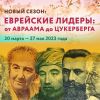Last week, Booknik read short novels by Mikhail Levitin, memoirs by Lev Losev, and palmers, discussed Boris Akunin’s translations into Hebrew, and Hanoch Levin, celebrated the Global Day of Jewish Learning with Booknik Jr., listened to the lecture on martyrdom, apology, and retribution in art, followed the life of one Japanese bureaucrat, watched The Secret and the Open, and The Tree, voted for other trees, danced at a Jewish wedding, adapted to the American city of M., then he learned more M-words, and ate böreks, and corn soup. Booknik Jr. read some very short sentimental tales, made a Useful Box, chose the best reprimands in his school record book, and learned some Shabbat prohibitions.
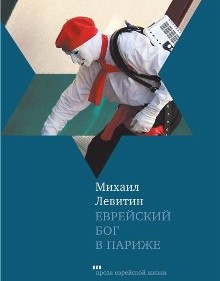
The Jewish God in Paris, by Mikhail Levitin
Mikhail Levitin is the stage and creative director of the Moscow Hermitage theater who was the first in Russia to produce theatrical shows based on the Oberiuts and Yury Olesha’s works. However, he is not only that for he is also an author himself. His book has been recently published in the “Prose of Jewish Life” book series supported by the AVI CHAI Foundation. This collection is read by Booknik reviewer Yevgenia Ritz.
Not a Poet, not a Citharist
Meander, a Memoir, by Lev Losev
The Novoye Isdatelstvo publishers put out the book by poet and literary scholar Lev Losev where he tells about himself, and those he had been lucky to be friends with or just to meet, from Joseph Brodsky to Elizabeth Taylor. In his book, he speaks about life. Booknik reviewer Ella Anokhina reads his memoir, and appreciates it much more than the author had expected.
Dear Katerina Matveyevna
Enchanted Pilgrims: The Arabic and Ottoman World through the Eyes of Russian Palmers of 16-18th Centuries, by Svetlana Kirillina
The path to the Middle East had been laid by the Russians long before the 16th century but the renown Russian orientalist Svetlana Kirillina decided to limit her study by the 16-18th centuries. The reason is simple, for it was in the 16th century when Palestine was finally occupied by the Ottoman Turks after the land had been changing hands many times. The Ottomans ruled it for four centuries after that. Also, by the 19th century, the social demographics of palmers changed, and their travelogues also modified. Among the “enchanted pilgrims” Dr. Kirillova writes about there are no major statesmen or church leaders. Her characters are rank-and-file clergy, merchants, tradespeople, and rich peasants who were the middle class of old Russia. Booknik reviewers Marina Karpova and Yevgeny Levin read about the palmers’ impressions of the Holy Land.
…and many other intrepid travels in the Books & Reviews section.
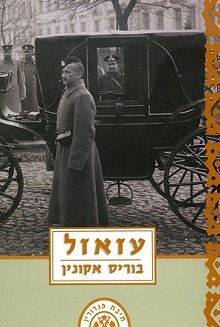
In January, the Israeli paper Maariv published the column with recommendations for tourists visiting Moscow. Apart from other things, it was noted there that the Russian capital is the special place for the career of “19th century James Bond,” Erast Fandorin, the protagonist of many novels written by Boris Akunin. The sleuth owns his success in the Middle East to the literary translator Igal Liverant, interviewed for Booknik by our Israeli reporter Shaul Reznik.
…and many other interactive interpretations in the Articles & Interviews section.
Around Midrash: Postmodernism and Sacral Texts
On November 7, the Strelka Institute of Media, Architecture, and Design hosted the seminar “Constructive Philology: Midrash in Contemporary Literature and Cinema,” organized by the Eshkolot Project with the support of the AVI CHAI Foundation. Booknik’s contributing editor Galina Zelenina, and our contributors Reuven Kipervasser and Maxim Eidis spoke about the Midrash tradition in the Biblical exegesis, postmodern literature, cinema, and other areas. Maxim Eidis shares this knowledge with Booknik readers.
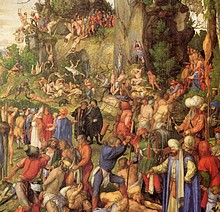
On October 24, the Eshkolot Project supported by the AVI CHAI Foundation arranged the lecture by Boris Haimovich, the art scholar of the Hebrew University in Jerusalem. It started with a paradox. The speaker said that he could not define art, and there was no such thing as Jewish art for sure. What ensued, Booknik reporter Maxim Eidis tells our readers, illustrating his story with pictures, and details.
Rabbi Steinsaltz: The Notion of Learning from Heaven Exists in Many Religions. In Our Life, Learning IS Heaven
On November 7, they celebrate the Global Day of Jewish Learning. The date is not random, for on this day, Rabbi Adin Steinsaltz finished his monumental endeavor of translating, and commenting Talmud. Completing any work demands celebrating, yet knowing the nature of the master one could guess that a standard ceremony and a banquet would not be appropriate. Instead, Rabbi Steinsaltz suggested tasting the fruit of his toils, and he invited everyone to learn. Under the auspices of the Aleph Society, there sprung groups of those wishing to have more of the Jewish learning all over the world, and by November 7, there were 600 thousand of such people. One of them was Booknik’s Israeli reporter Ariel Bulstein who tells us now how the learning took place.
Tatsuo Osaka Who Helped Inconspicuously
It all started on a day when Akira Kitade learned what his boss had done in the WW2. He had been doing a weird thing for someone living in an Axis country, helping to save Jews. Sorting out Tatsuo Osaka’s archives after his death, Kitade-san found an old diary with thousands of Jewish refugees’ photos. He was so shaken that he promised himself to find the survivors or their descendants, as a sign of respect to his late boss. Our Ukrainian contributor Lesya Bobrova tells the story of the Japanese bureaucrat who saved Jews.
…and many other memorial melodies in the Events & Reports section.
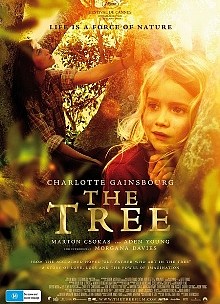
The Tree, directed by Julie Bertucelli
A man comes back home after a long journey, enters his house under a shady fig tree, and dies of a heart failure. His wife becomes a widow, with four children to take care of, and his house becomes an abode of sadness. As for his soul— well, it’s a tricky question. His daughter is sure that her father’s soul got transferred to the tree, and speaks with her from thence. Her mother and brothers believe the girl is not quite herself but they do not interfere, just in case. The fig tree has its own opinion. Booknik contributor Anna Andreyeva watches the film about elements, love, and trees.
15 Facts about a Jewish Wedding
The Ashkenazim have their bridegrooms and brides fasting before their wedding. This custom has many pious explanations but the real reason is simple. Rabbis, evidently from their sad previous experience, were afraid that before the actual ceremony a bridegroom might get drunk senseless, and thus be unable to take part in the wedding. Booknik contributors Marina Karpova and Yevgeny Levin pass on their knowledge of Jewish weddings.
Böreks, Are They Pies or Films?
When they mention böreks in Israel, they mean flaky pies with stuffing. In the Israeli fast food industry, böreks are what blinis and pies are in the Russian cuisine. They are tasty, fatty, and bad for your health. Booknik contributor Keren Pevzner teaches our readers how to cook them anyway.
…and many other tasty treats in the Columns & Columns section.
Friendly Strangers Came to Town
“Preparing to go to the city of M., I thought I’d be able to get some rest from the Israeli heat in the quiet comfortable America. There, I’d never have that constant bustle or news on the radio, and I’d be able to finish my dissertation in their good local library, I’d buy some blue jeans, and drive along excellent American highways in a powerful American car. I was right only about the heat, for in early October, in M. the temperature is around zero centigrade. The rest of my reality was a little bit different, to put it mildly.” Booknik contributor Ursula Crossexaltationer tells her story of adapting to America after coming there from Israel.
…and many other exalted explanations Stories & Essays section.

Booknik has finished accepting your submissions for the Hello, Tree! contest, and he now patiently waits for your votes. So come and vote! Beautiful trees stand and wait for your votes! You may do so up until November 25! Thank you for your
…and many other deciduous dendrites in the Contests & Quizzes section.
A Flickering Jew 10: A Godsend for Zionist Propaganda
In 1973, the Central Studio of Documentary Films was commissioned to make a documentary about imperialism and Zionism. The film director Boris Karpov took the commission up, and successfully fulfilled the communist party’s task. The film told all truth about the “Zionist movement,” and it was titled The Secret and the Open. However, the documentary underwent severe criticism, and editing, so in the end there remained hardly anything of the initial production. The interesting part is that it was not bombarded “from above,” as it usually happened, but “from below,” for it was “a grassroots initiative” of “common soviet people.” Booknik’s editor-in-chief Sergey Kuznetsov delves deeper into the vaults of the soviet film archives.
Victor Shamirov on Hanoch Levin
The stage director Victor Shamirov granted an interview to the Eshkol Project, and Booknik listened to it with interest. Apart from that, Eshkol was told about Hanoch Levin by the stage director Roman Viktyuk. Why is that, you ask. It’s because on November 18, the Eshkol Project organizes the Evening of Israeli Drama with the support of the AVI CHAI Foundation. Booknik will definitely be there to watch “4 Plays by Hanoch Levin.”
Hebrarium, the Lexicon of Jewish Whatnots: M6
When is it possible to break the mitzvah? What did the Mashiach build? Why the 10 shekels depict Muscovites? Watch our Hebrarium, and learn from Kirill Chichayev.
Don’t Grudge the Brew 61: The Corn Soup
Suppose you’re waken up by a phone ringing on a Sunday morning. Your relatives are calling to inform you that they want to come at about midday with their whole qahal. You don’t stand a chance of refusing them but you have a couple of hours to cook something special for them. So that everyone eats, and guesses what your soup was made of. Our brilliant chef Roman Gershuni performs miracles yet again.
…and many other modern M-Fashniks in the Video Blog section.
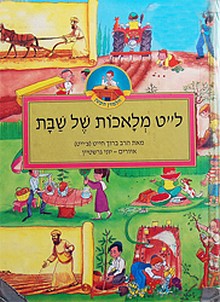
39 Avot Melacha of Shabbos, by Rabbi Baruch Chait, illustrated by Yoni Gerstein
Is it allowed to slice veggies for a salad on Shabbat? Can one take those veggies from a fridge? Or, maybe, it’s better not to open this fridge at all, and ask your mom to do it for you? She’s not a sticker to traditions, she doesn’t care if it’s Monday or Saturday. Oh no, she’s Jewish, too, so she’ll have to break Shabbat because of you. Yelizaveta Guller reads the children’s book about dos and don’ts of Shabbat wishing to have had this book when she was younger.
Remember Remember the Day of November
On November 7, the Jewish world celebrates the Day of Learning. Everyone knows that. But this holiday is rather new, so we’d better sort out once and for all what does it mean. Zhenya Lopatnik tells the story with much gusto.
A Lullaby for the Wolf-Cub
Into the Wonder Childhood, with Mikhail Yasnov: Tales by Irina Zartayskaya
Irina Zartayskaya is a very young author, and she writes small fables. This is rare. Her characters are usually things, toys, and natural phenomena that turn out to be somewhat human. Some may think her tales are too sentimental but all of them have unexpected endings.

Booknik Jr. suggests you make a Useful Box. You can keep everything in it, newspapers, magazines, all kinds of important papers, and letters. You could make it for your friend’s birthday, for your mom or someone else. This Very Useful Gift will bring happiness to anyone, and Yelizaveta Guller will teach you how.
A School Record Book
Booknik Jr. has completed the contest of teachers’ reprimands, and now he knows the winners! Our readers have selected three, and Booknik Jr. himself chose his own ones. It was a very hard job, for we laughed and cried over each one, but we did it. Now go there and see for yourselves!
…and many other curious curricula at Booknik Jr., also known as Family Booknik, our own web site for kids and their parents.
The Mirror People! Booknik and Family Booknik are supported by the AVI CHAI Foundation.









